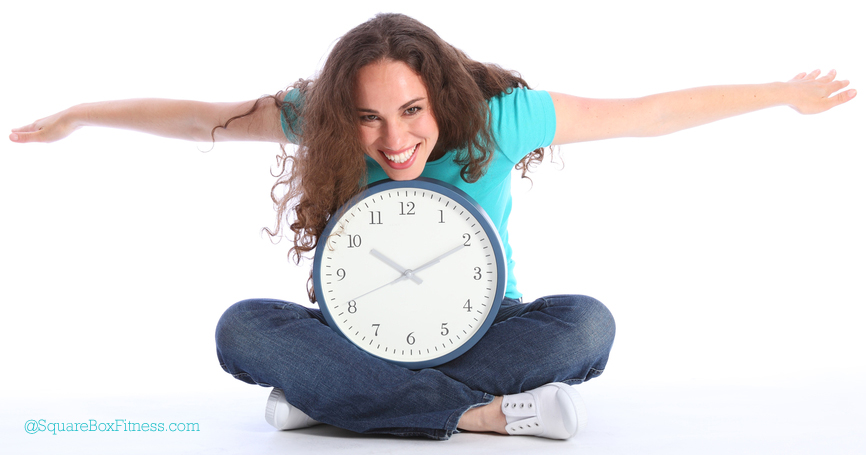The perception of time is an interesting emotion. All of us have the same 24 hours in a day and can count the seconds in a minute easily.
However, how we experience the passing seconds is what makes us individuals. One person’s minute is not the same as another.
Why then does it seem like Christmas 2016 was just last week to us, but to a child, Christmas was last year!
3 theories below try and explain the perception of time.
- We gauge time by memorable events.Our brain encodes into memory new experiences, but not familiar ones. From childhood to early adulthood, we have many fresh experiences and learn many new skills.
The processing of these events “takes time” in the brain however routine events are “timeless.”
The experience of the passing of time is marked by an event, for example, Christmas and Christmas seems to come around more quickly as we age because we are experienced with the experience.
We can relate this back to our exercising – when the exercise is static (like the plank) a minute is a very long time, whereas a minute’s chat seems to fly.
2. The amount of time passed relative to one’s age varies.
A fabulous interactive visualization, by Austrian designer Maximilian Kiener, who tries to explain that we perceive time by comparing it to “absolute” time.
In other words, the longer we are alive, the smaller a year becomes in relation to our life as a whole. For example, when we were five, a year is 20% of our life. When we are 50, a year is only 2% of our life.
Perhaps then as we age our 30-minute workout will eventually feel like a 1-minute walk in the park? Perhaps not!
3. Our biological clock slows as we age.
The slowing of our biological clocks or our metabolism when we get older matches the slowing of our heartbeat and our breathing.
Children’s biological pacemakers beat more quickly, meaning that they experience more biological markers (heartbeats and breaths) in a fixed period, making it feel like more time has passed.
Another way of looking at it is; because children are more active in the same period, it seems then that time slows down.
Therefore time will slow down for an adult, because increasing fitness is accompanied by higher metabolism and a lower biological age.
Fitness means we can do more memorable things with our time extending our health and well being.
The time paradox
Philip George Zimbardo a psychologist and a former professor at Stanford University, puts forward that time is within our control, and if we choose to take control of time, then we will live happily with a fulfilled life.
He repeated the classic marshmallow experiment by Professor Walter Mischel, where children were given a choice to eat a marshmallow now or wait until the experimenter came back and then the child would receive 2 marshmallows.
Needless to say that not many children were able to wait, but for those that did, 14 years later in a follow-up study, these adults were brighter, more successful, self-confident and compassionate.
The experiment showed that delaying self-gratification puts into perspective the consequences of choice, and decisions making becomes a rational judgment.
Making rational judgments is what distinguishes children from adults irrespective of age.
When it comes to fitness and nutrition, we can apply these principals. By sacrificing a little time now for exercise and making better food choices will make a significant impact on our future well-being.
Join us next week as we start our shape up classes for 2017 see details below.
I leave you now with a perspective of time.
In bed, it’s 6am. You close your eyes for 5 minutes, it’s 7:45am!!!. At work, it’s 10:10am, close your eyes for 5 minutes and its 10.11am…..
Live well with fitness!
Anna


Recent Comments